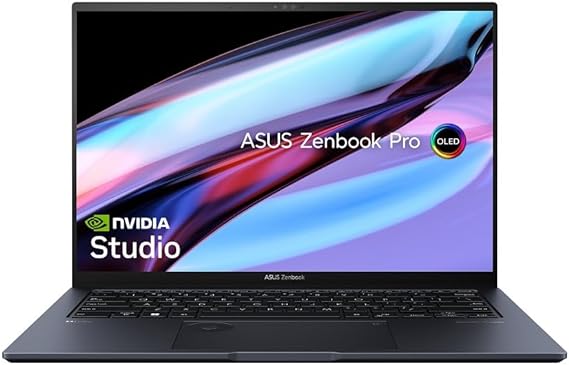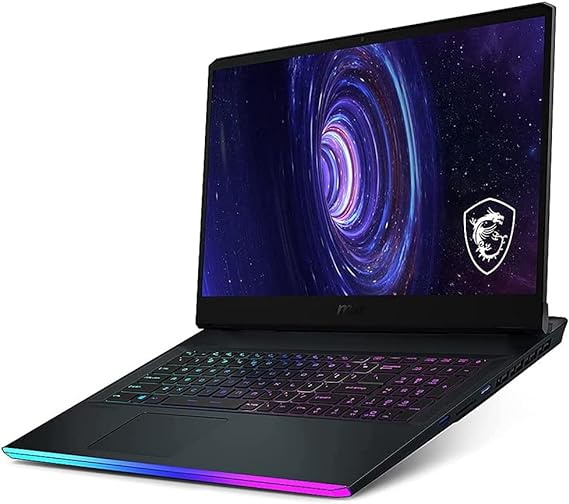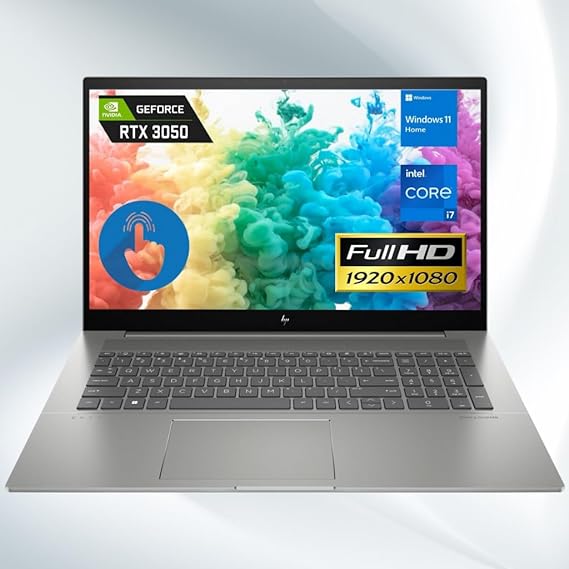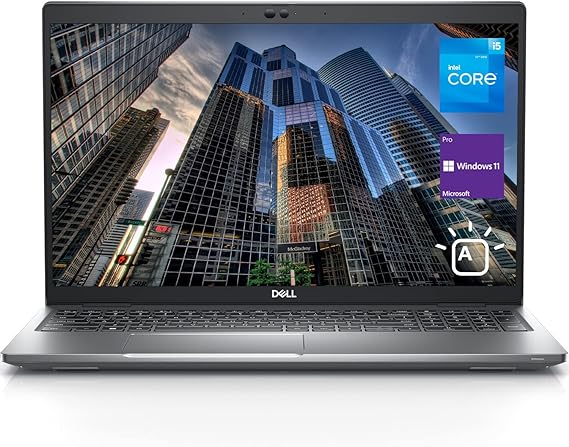Best laptops for AI and ML | Artificial intelligence (AI) and machine learning (ML) are rapidly evolving fields, pushing the boundaries of what computers can achieve. If you’re looking to delve into these exciting areas, you’ll need a powerful and reliable laptop to handle the demanding workloads. But with so many options on the market, choosing the right one can be a challenge. This guide will explore the best laptops for AI and ML, considering factors like processing power, graphics capabilities, and portability.
Best engineering laptops under $1000
Laptop requirements for AI and ML
- Strong Processor (CPU): Aim for at least 8 cores, ideally 16 or more. Think Intel Core i7 or AMD Ryzen 7.
- Lots of Memory (RAM): 16 GB is good, 32 GB is even better for smooth multitasking.
- Big Storage (SSD): 1 TB SSD is a good start, consider even larger for massive datasets.
- Powerful Graphics (GPU): NVIDIA GeForce RTX 2050 or better for faster processing.
The best laptops for AI and ML
- ASUS Zenbook Pro 14 OLED ($2,297)
- MSI GE76 Raider Gaming Laptop ($1,394)
- Apple MacBook Pro Laptop M3 Pro chip ($2,069)
- HP Newest Envy Laptop ($1,177)
- Dell Latitude 5530 Business Laptop ($869)
1. Zenbook Pro 14 (Best ASUS laptop for AI and ML)

| Model Name | Zenbook Pro 14 |
| Screen Size | 14.5 Inches |
| Color | Tech Black |
| Hard Disk Size | 1 TB |
| CPU Model | Core i9 |
| Ram Memory Installed Size | 32 GB |
| Operating System | Windows 11 Home |
| Graphics Card Description | Dedicated |
| Graphics Coprocessor | NVIDIA GeForce RTX 4070 |
The ASUS Zenbook Pro, with its robust specifications and feature set, is indeed a commendable choice for individuals delving into AI and ML endeavors. Here’s why it stands out among the best laptops for AI and ML:
Properties of ASUS Zenbook Pro
- Powerful Processor and Graphics: The 13th generation Intel Core i9-13900H processor, boasting 14 cores and 20 threads with a turbo boost up to 5.4 GHz, provides substantial computational power for intensive AI and ML tasks. Coupled with the NVIDIA GeForce RTX 4070 Laptop GPU with 8GB GDDR6 VRAM, the laptop ensures seamless performance in data processing, model training, and inferencing.
- Ample Memory and Storage: With a combined 32GB of DDR5 RAM (16GB onboard + 16GB SO-DIMM), the Zenbook Pro facilitates multitasking and handling large datasets efficiently. The 1TB M.2 NVMe PCIe 4.0 SSD delivers blazing-fast storage access, enabling quick data retrieval and model loading, crucial for AI and ML workflows.
- High-Resolution OLED Display: The 14.5-inch WQXGA+ OLED touchscreen, certified with Dolby Vision and PANTONE validation, offers stunning visual clarity and color accuracy essential for analyzing data visualizations, debugging models, and interpreting results in AI and ML projects.
- ASUS DialPad Integration: The ASUS DialPad enhances productivity by providing intuitive control over creative applications, allowing users to adjust parameters like brush size and saturation with ease. This feature streamlines workflows, especially in tasks involving data visualization, image processing, and graphic design, which are integral to AI and ML development.
In conclusion, the ASUS Zenbook Pro excels in processing power, graphical capabilities, memory, storage, and display quality, making it an excellent choice for professionals and enthusiasts engaged in AI and ML pursuits. Its combination of cutting-edge hardware and innovative features caters to the demanding requirements of modern AI and ML workflows, ensuring optimal performance and productivity.
2. MSI GE76 Raider (Best gaming laptop for AI and ML)

| Model Name | GE76 |
| Screen Size | 17.3 Inches |
| Hard Disk Size | 2 TB |
| CPU Model | Core i7 |
| Ram Memory Installed Size | 32 GB |
| Operating System | Windows 11 Home |
| Special Feature | Thin Bezel |
| Graphics Card Description | Dedicated |
| Graphics Coprocessor | NVIDIA GeForce RTX 3060 |
The MSI GE76 Raider with the specified features is a strong contender for the title of “Best laptops for AI and ML” due to several key attributes:
Properties of MSI GE76
- Powerful CPU and GPU: The laptop is equipped with an Intel Core i7-12700H 14 Core CPU and an NVIDIA GeForce RTX 3060 Laptop GPU. These components provide significant processing power necessary for AI and machine learning tasks, including model training, data processing, and inference.
- High Memory Capacity and Speed: With 32GB of DDR5 4800MHz memory, the laptop can handle large datasets and complex algorithms efficiently. This ensures smooth multitasking and rapid data processing, crucial for AI and ML workflows.
- Large NVMe SSD Capacity: The 2TB NVMe SSD offers ample storage space for datasets, models, and various software tools used in AI and ML development. The NVMe interface also ensures fast read/write speeds, enhancing overall system performance.
- High-resolution Display and Graphics Performance: The 17.3″ Thin Bezel FHD IPS-Level 144Hz display provides a vibrant and responsive visual experience, which is beneficial for tasks such as data visualization and model evaluation. The NVIDIA GeForce RTX 3060 GPU with up to 1802MHz Boost Clock ensures smooth graphics rendering and supports GPU-accelerated machine learning frameworks.
- Versatile Connectivity Options: The laptop features a variety of USB ports, including USB 3.2 Gen 2, USB 3.2 Gen 1 Type-C, and Thunderbolt 4 USB4, offering flexibility in connecting external devices, peripherals, and high-speed data transfer.
- Robust Build and Warranty: As an international model with warranty, the MSI GE76 Raider offers peace of mind to users, ensuring support and service in case of any issues or concerns.
Overall, the MSI GE76 Raider combines powerful hardware specifications, ample storage capacity, high-resolution display, and versatile connectivity options, making it an excellent choice for AI and ML professionals and enthusiasts who require a reliable and capable laptop for demanding computational tasks.
3. MacBook Pro (Best AI laptop 2024)

| Model Name | MacBook Pro |
| Screen Size | 16.2 Inches |
| Color | Space Black |
| Hard Disk Size | 512 GB |
| Ram Memory Installed Size | 18 GB |
| Operating System | Mac OS |
| Graphics Card Description | Integrated |
| Graphics Coprocessor | Apple Integrated Graphics |
The MacBook Pro equipped with either the M3 Pro or M3 Max chip offers a compelling choice for professionals working in AI and machine learning (ML) fields. Here’s why it stands out as one of the best laptops for AI and ML tasks:
Properties of MacBook Pro
- Powerful Chipsets: The M3 Pro and M3 Max chips boast impressive specifications tailored for demanding AI and ML workflows. The 12-core CPU and 18-core GPU of the M3 Pro, as well as the up to 16-core CPU and up to 40-core GPU of the M3 Max, provide substantial computational power necessary for tasks like training complex models and processing large datasets efficiently.
- Long Battery Life: With up to 22 hours of battery life, the MacBook Pro ensures that professionals can work on AI and ML projects for extended periods without worrying about running out of power. This is crucial for tasks that require continuous computation and analysis.
- High-Resolution Display: The 16.2-inch Liquid Retina XDR display with Extreme Dynamic Range offers exceptional clarity and detail, making it ideal for visualizing intricate data sets, analyzing results, and creating visually appealing presentations or reports.
- Compatibility and Performance: The MacBook Pro is fully compatible with a wide range of professional applications used in AI and ML, including Adobe Creative Cloud, Apple Xcode, and MATLAB, ensuring seamless integration into existing workflows. The exceptional performance of the Apple silicon chips ensures smooth operation even with resource-intensive tasks.
- Advanced Camera and Audio: The inclusion of a high-definition FaceTime camera and studio-quality microphones ensures clear communication during collaborative AI and ML projects, video conferences, or virtual presentations.
- Versatile Connectivity Options: The MacBook Pro offers a comprehensive selection of ports, including Thunderbolt 4, HDMI, and SDXC card slots, facilitating seamless connections to external displays, storage devices, and peripherals essential for AI and ML work.
- Security and Durability: With robust security features, including encryption and virus protection, coupled with the durable all-aluminum unibody enclosure, the MacBook Pro offers peace of mind to professionals working with sensitive data and ensures longevity and reliability.
- Integration with Apple Ecosystem: The seamless integration with other Apple devices enhances productivity and enables efficient multitasking and data sharing across platforms, making it easier for professionals to leverage the full potential of their Apple ecosystem.
Overall, the combination of powerful hardware, advanced features, and seamless integration with professional software and services makes the MacBook Pro an excellent choice for professionals working in the AI and ML domains.
4. HP Newest Envy Laptop

| Model Name | TPN-C160 |
| Screen Size | 17.3 Inches |
| Color | Gray |
| Hard Disk Size | 1 TB |
| CPU Model | Core i7 Family |
| Ram Memory Installed Size | 64 GB |
| Operating System | Windows 11 Home |
| Special Feature | Backlit Kb |
| Graphics Card Description | NVIDIA RTX 3050 Dedicated |
The HP Envy Laptop with its robust specifications is indeed a commendable choice for AI and ML tasks. Here’s why:
Properties of HP Envy
- Powerful Processor: The 13th Gen Intel Core i7-1355U processor, with its 10 cores and 12 threads, offers significant computational power required for AI and ML tasks. Its high clock speed of up to 5.0 GHz ensures swift execution of complex algorithms.
- Ample RAM: With 64GB of high-bandwidth DDR4 RAM, this laptop can efficiently handle large datasets and run multiple AI/ML applications simultaneously without compromising on performance.
- Dedicated Graphics: The NVIDIA RTX 3050 GPU provides substantial graphical processing power, which is beneficial for tasks involving deep learning, neural network training, and other GPU-accelerated computations commonly found in AI and ML workloads.
- Storage Speed: The 1TB PCIe NVMe M.2 Solid State Drive ensures fast boot-up times and rapid data transfer rates, crucial for handling massive datasets and model training.
- Large, Touchscreen Display: The 17.3″ FHD touchscreen display offers ample screen real estate for data visualization, model monitoring, and interactive exploration of AI/ML projects.
- Connectivity Options: The laptop offers a variety of connectivity options including USB 3.2 Type-A, Thunderbolt 4, HDMI 2.1, and Wi-Fi 6, facilitating seamless integration with peripherals and high-speed data transfer.
- Windows 11 Home: The latest operating system from Microsoft, Windows 11 Home, brings enhanced performance features and better multi-monitor functionality, which are advantageous for AI and ML workflows. Additionally, compatibility with Android apps widens the scope of available tools and resources for AI developers.
In summary, the HP Envy Laptop combines powerful hardware specifications, ample memory, dedicated graphics, and a versatile operating system, making it an excellent choice for AI and ML tasks, from data preprocessing to model training and deployment.
5. Dell Latitude 5530 Business Laptop

| Model Name | Latitude |
| Screen Size | 15.6 Inches |
| Color | Silver |
| Hard Disk Size | 512 GB |
| CPU Model | Core i5 |
| Ram Memory Installed Size | 16 GB |
| Operating System | Windows 11 Pro |
| Special Feature | Backlit Keyboard |
| Graphics Card Description | Dedicated |
The Dell Latitude 5530 Business Laptop packs a punch with its powerful specs, making it a solid choice for AI and ML tasks. Here’s why it stands out:
Properties of Latitude 5530
- 12th Gen Intel Core i5-1235U Processor: The 12th Gen Intel Core processor provides high computing power necessary for AI and ML tasks. Its advanced architecture allows for faster data processing and model training.
- 16GB RAM: Ample RAM is crucial for handling large datasets and running complex algorithms simultaneously. With 16GB of RAM, this laptop ensures smooth multitasking and efficient model training.
- 512GB SSD: Storage speed is essential for AI and ML workflows, especially when dealing with large datasets. The SSD not only provides ample storage space but also offers fast read/write speeds, reducing data access latency.
- 15.6″ FHD Display: The Full HD display offers crisp visuals, making it easier to analyze data, visualize models, and interpret results accurately. A larger screen size provides more workspace for coding and running experiments.
- Thunderbolt 4 and HDMI: These ports allow for easy connectivity to external GPUs or high-resolution displays, enhancing the laptop’s versatility for AI and ML tasks that require intensive processing power or multiple monitors.
- Wi-Fi 6: Fast and reliable internet connectivity is crucial for accessing cloud-based AI tools, downloading datasets, or collaborating with team members. Wi-Fi 6 ensures a stable connection, reducing latency during online tasks.
- Windows 11 Pro: The latest operating system from Microsoft offers enhanced security features, improved multitasking capabilities, and better integration with AI and ML development tools.
- Webcam and Backlit Keyboard: While not directly related to AI and ML tasks, these features add convenience for virtual meetings, presentations, and late-night coding sessions.
In conclusion, the Dell Latitude 5530 Business Laptop combines powerful hardware specifications with essential features for AI and ML workloads, making it a top choice for professionals in these fields.
Conclusion – Best laptops for AI and ML
In conclusion, the “best” laptop for AI and ML depends on your specific needs and budget. For cutting-edge tasks, prioritize a powerful processor, generous RAM, and a dedicated graphics card. If portability is key, consider a well-balanced machine with strong processing capabilities. No matter your choice, ensure your laptop is compatible with essential AI/ML software and has sufficient storage for large datasets.
FAQs – Best laptops for AI and ML
Artificial intelligence (AI) and machine learning (ML) are rapidly growing fields that rely heavily on computing power. Whether you’re a seasoned professional or just starting your journey in AI/ML, choosing the right laptop is crucial. This FAQ will guide you through the essential factors to consider and explore some of the top laptops best suited for tackling demanding AI and ML tasks.
In this section, we will look for answers to the following frequently asked questions about laptops for AI and ML.
- Which is the best laptop for AI and machine learning?
- How much RAM is needed for AI and ML?
- Which processor is best for AI ML?
- Is Mac good for ML and AI?
1. Which is the best laptop for AI and machine learning?
All the laptops listed in this article are excellent choices for artificial intelligence and machine learning. On the other hand, for AI and machine learning, prioritize these two options:
- Most Powerful: Apple MacBook Pro 16-inch (M3 Max/Pro) – Ideal for heavy duty work but can be expensive.
- Great Balance: Microsoft Surface Laptop Studio – Powerful enough and still portable.
2. How much RAM is needed for AI and ML?
The amount of RAM you’ll need for AI and machine learning (ML) depends on the complexity of your projects. Here’s a general guideline:
- Small datasets and simple models: 8GB to 16GB of RAM can handle basic tasks like linear regression or decision trees.
- Large datasets and deep learning models: These require more memory due to their complexity. In this case, 32GB or even more RAM is recommended.
There’s a rule of thumb to follow as well: aim for at least as much RAM as you have GPU memory, plus an additional 25% for good measure. This helps avoid performance issues when switching data between RAM and storage.
Here are some additional factors to consider:
- Type of AI/ML project: Deep learning is generally more memory-intensive than traditional machine learning.
- Dataset size: Larger datasets require more RAM to store and process.
- Software requirements: Check the recommended RAM for specific software you plan to use.
By considering these factors, you can choose the right amount of RAM for your AI and ML projects.
3. Which processor is best for AI ML?
There isn’t a single “best” processor for AI and machine learning (AI/ML), but two strong contenders emerge depending on your needs:
- AMD Ryzen Threadripper PRO: This processor boasts exceptional core density, with up to 64 cores using 7nm process technology. It also provides ample support for multiple high-performance graphics cards (GPUs) through its 128 PCIe 4.0 lanes, making it ideal for professional workloads.
- Intel Xeon W-3300: Like the Threadripper PRO, the Xeon W-3300 offers excellent reliability and supports multiple GPUs with its PCI-Express lanes. Additionally, it features strong memory performance within the CPU itself.
Here are some key factors to consider when choosing a processor for AI/ML:
- Number of cores: More cores generally translate to better performance in AI/ML tasks, as they can handle multiple calculations simultaneously.
- Clock speed: A faster clock speed allows each core to process data quicker.
- Memory bandwidth: High memory bandwidth is crucial for smoothly handling large datasets used in AI/ML.
- PCIe lanes: These lanes connect the CPU to other components like GPUs, which play a significant role in AI/ML workloads.
It’s important to remember that a powerful GPU can often be more impactful for AI/ML than the CPU itself. Consider your budget and the specific AI/ML tasks you’ll be tackling to make the most informed decision.
4. Is Mac good for ML and AI?
Yes, Macs can be suitable for machine learning (ML) and artificial intelligence (AI) tasks, especially for certain types of work. Macs are known for their high-quality hardware, user-friendly interface, and Unix-based operating system, which is favored by many developers and researchers.
However, when compared to dedicated AI and ML workstations or servers, Macs might not always offer the same level of performance or scalability, particularly for intensive tasks that require significant computational power or GPU acceleration.
That said, for smaller-scale projects, prototyping, or development work, Macs can be quite capable. Additionally, with tools like TensorFlow and PyTorch becoming more optimized for macOS, it’s becoming increasingly feasible to do ML and AI work directly on Mac systems. Ultimately, the suitability of a Mac for ML and AI depends on the specific requirements and scale of the project.

